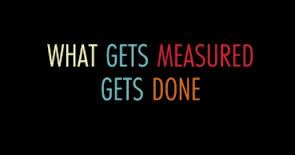
by Gary Reinecke | Feb 27, 2017 | Disciplemaking, Focused Ministry, Leader Development |
How do you work with someone who has been in the workforce for thirty years (50+ years of age) as opposed to three years (30-40’s years of age)? Take into consideration the following scenario.
First time church planter (in their 30’s) – high on vision & low on experience. I coached a new church planter who primarily asked “how to” questions to process his philosophy of ministry, challenges he encountered and self-discovered action steps. I challenged his thinking by asking pointed questions to help him realize that he has the resources inside himself to take the next steps in his church planting journey. The new church planter is in many ways, unaware of what he/she does not know.
Contrast him with a seasoned leader – high on vision & high on experience. The seasoned leader (50+ years of age) asked “what” and “when” questions. He has a rich experience base to draw from and his confidence runs deep. The seasoned leader is in many ways more aware of what he/she does not know.
Following are reflection questions for you as the coach to consider during the when coaching across generational lines:
- What questions are they asking?
- What kind of help are they seeking from you?
- What is the best way for you to support them as a coach?
There exists real differences that are important to recognize when coaching across generational and experiential lines – see the Generational Differences resources for more insight into these subtleties.

by Gary Reinecke | Feb 19, 2017 | Church Growth, Church Multiplication, Leader Development |
What about you?
It is easy to measure the low lying fruit. For instance, church leadership will measure things like worship attendance, offerings, and baptisms. But what if you looked below the surface. At my home church an important metric we track is the percentage of adults who regularly participate in a small group. Annual engagement in 2016 was 94% (click Crosspoint Church for report). The church launched over a decade ago with the goal of focusing resources (time, energy, people) to do a few things well; which has paid off at Crosspoint – a church of small groups vs. a church with small groups!
Consider the following challenge:
- Reflect on the measures below the surface that will have the greatest impact on the health and growth of your:
- leadership
- team
- organization
- Then tie those to outcomes you are striving to achieve e.g. making small groups a priority in my example.
- Brainstorm ideas of how you can impact that area over the course of the next 30-60-90 days.
Effective leaders understand the principle: “Say No – to say Yes to What Matters!” Leaders who focus their time, energy and people; regularly assess their ministry, make adjustments and forecast the future with a high degree of accuracy. This surfaces the strategic question: What are you measuring?
Remember – you measure what matters!

by Gary Reinecke | Feb 13, 2017 | Church Growth, Church Multiplication, Coach Training, Disciplemaking, Leader Development, Uncategorized |
It is easy to get excited about coaching or a training initiative without understanding the true impact.
How many times have you heard colleagues discuss a new training process or coaching resource? And then get partway through the experience without understanding the impact on you or your organization. Wouldn’t it be worthwhile to consider the potential Return on Investment (ROI) before you start?
Consider a coaching relationship. When you or I establish a coach agreement we ask the leader to create goals. Over the course of the next year we work towards achieving those goals and assess the progress at the conclusion of our time together. Using the six levels described below you can see that we moved from Level 0 (scope, in my example) to Level 1 (reaction to the coaching process) to Level 2 (learning that occurred) to level 3 (applying the knowledge to the leader’s ministry).
There is a process to measure the ROI on training and coaching. Most of the coaching and training done in organizations settle for Level 1 or Level 2 evaluation – a few take it to Level 3. Here are the six levels:
- Level 0: Inputs
- Level 1: Reaction
- Level 2: Learning
- Level 3: Application
- Level 4: Impact
- Level 5: Return on Investment (ROI)
Review the descriptions above and consider a coaching or training process you are leading. Let’s say it is a leader development process that involves quarterly workshops with coaching in-between. Whatever it is that you are currently working on (developing small group leaders), or anticipate in the near future – what level of measurement are you incorporating in your process.
I’ve discovered that leaders are eager to know the ROI on some of the training and coaching that they are engaged. When they realize that it is possible to calculate and monetize the impact of their investment, it transforms the significance of the training/coaching because they are clear “why” they are making the investment.
Places where ROI is helpful:
- Organization-wide leader development training
- Coaching pastors, church planters, regional network leaders and movement leaders
- Coach training for church planting, parent church coaches or disciple-making movements
A helpful book on ROI, entitled “Show Me the Money” provides a more complete explanation. If you have questions, please e-mail InFocus for more information.


